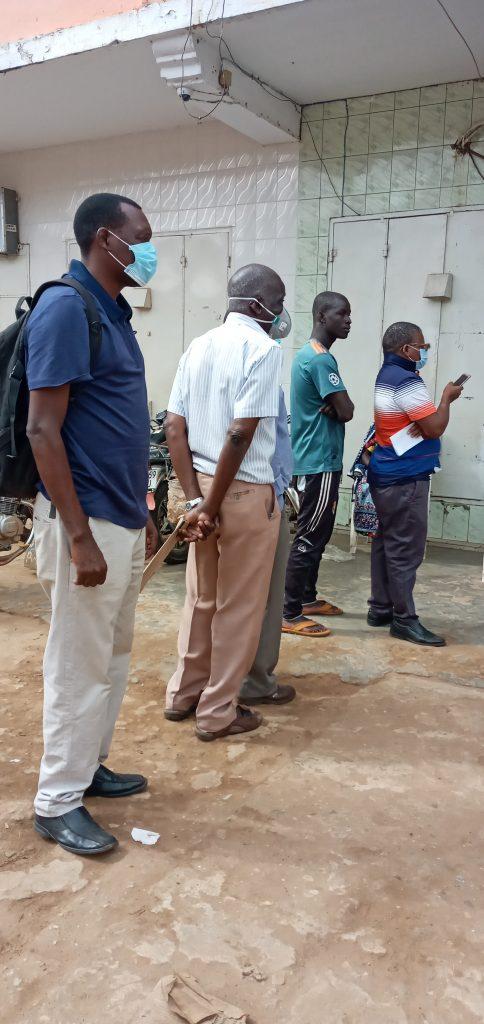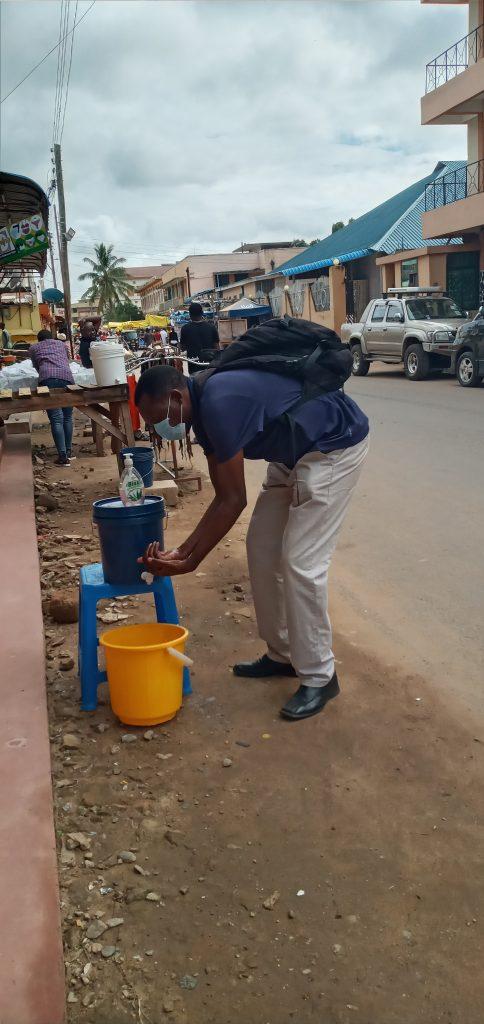
The COVID-19 pandemic has jeopardised solidarity globally. Even if there have also been encouraging signs, communities such as the European Union, the African Union (and its regional economic communities), and the ASEAN region have all experienced problems with solidarity in this time of crisis. There is widespread fear that Africa will harbour the pandemic for a long time due to weak solidarity and weak health systems. This editorial will focus more in particular on the East African Community (EAC).
Re-established in 2000 after its dissolution in 1977, the EAC is composed of six member states: Burundi, Kenya, Rwanda, South Sudan, Tanzania, and Uganda. The EAC has four main integration pillars: the Customs Union, Common Market, Monetary Union, and Political Federation. They are at different stages of implementation, with the last two still underway. The health sector is under the Customs Union pillar and aims to:
“Undertake joint action towards the prevention and control of communicable and non-communicable diseases and to control pandemics and epidemics of communicable and vector-borne diseases that might endanger the health and welfare of the residents of the Community and cooperate in facilitating mass immunisation and other public health community campaigns.”
As of 26 April 2020, the EAC had recorded 918 COVID-19 cases (5% of the cases in Africa) with the most in Kenya (37%), Tanzania (33%), and Rwanda (20%). As you can imagine, there is considerable variation across countries with some doubts on the reliability of reports due to testing capacity and levels of transparency.
Regional experience and/or lessons from history?
As has been reported, lessons from the Ebola outbreak may be shaping decisions on COVID-19 in some African countries such as Sierra Leone and DR Congo. The EAC also has pandemic preparedness strategies and plans, based on experience with Ebola outbreaks in some countries in the region (such as Uganda) and outbreaks of other infectious diseases including Rift Valley, Cholera, Marburg, and Yellow Fever in most member states.
Like most countries in the world, and in spite of some WHO guidance on preparedness plans, post-colonial African governments have limited experience with fighting pandemics of this nature, however. As post-colonial governments, neither are they very familiar with the history and impact of the 1918 influenza “Spanish flu” pandemic, which occurred during World War I and killed about 50–100 million people globally. Terrible stories of how the pandemic disrupted the social fabric and lead to massive deaths in Africa have been documented:
“In rural areas tilling, planting and harvesting came to a halt and cows were left unmilked because whole households lay sick or dying in their homes.” ; “Addis Ababa ‘looked like a dead city’.”
Furthermore, evidence attests how government functions collapsed as a result of the pandemic:
“The Abyssinian government [was] utterly disorganised utterly disorganised as a result of influenza epidemic”, and it was “no longer possible to regard the Government as a serious organization with which the Powers can satisfactorily treat.”
In an arguably very different era, what are the chances that the COVID-19 pandemic will lead to damage equivalent to (or even higher than) the Spanish flu? Responses to this question are mixed, but most don’t consider this a very likely scenario given the widespread knowledge on infection control, antibiotics to prevent secondary bacterial infections, and advances in technology. And of course, this time it concerns a coronavirus, not a flu. Nevertheless, with rising Covid-19 figures now on the continent, Africa may only be at the beginning. Having said that, it’s not clear yet what awaits Africa, some reports already hint at a continent that might have ‘dodged a bullet’. In any case, it seems too early for conclusions – and the picture will surely get clearer the coming months.
While some aspects have undoubtedly improved in Africa over the last 100 years, and the continent might for once turn out relatively “lucky” compared to other regions in the world, this could still become a huge catastrophe (both in terms of health and economically), if responses are not up to the challenge.
The three F’s and the need for regional solidarity and coordination
The pandemic has already impacted several social and economic activities and overloaded the health care system leading to paralysis of equally important services such as HIV treatment, diabetes, and maternal and child services. The scarce human workforce is unprotected either due to the unavailability of personal protective equipment (PPE) or lack of clear guidance on PPEs and other important measures to protect themselves and their patients.
The dire reality can be described as three F’s: Fragile health systems, Frustrated people, and Fractured (political) decisions to mount control measures as per the WHO recommendations have surfaced (and dominated) in the COVID-19 talk about Africa. Comparatively little attention has been paid to solidarity between countries and regions within the continent.
Although the WHO Afro region and Africa CDC are leading the continental fight against COVID-19, coordination between East African countries is also especially necessary.
In this pandemic, sadly, there are barely coordinated countermeasures in the region and each country is more or less fighting its own battle. Collective actions and obligations to help each other as stipulated in the EAC establishment treaty seem to be sidelined. The community has taken scattered actions to protect the people and economy, such as organizing a meeting of the ministers responsible for health and EAC affairs. This meeting deliberated on implementing some measures to control infections across borders and distributing mobile laboratory and testing kits to member states.
The COVID-19 countermeasures also vary across member states. Kenya, Uganda, and Rwanda went far to include “strong” lockdowns and curfews while Burundi, Tanzania, and South Sudan have instituted only a few “relaxed” measures carefully (or less carefully in some cases). However, without coordination/solidarity in countermeasures, cross-border transmissions will impact all member states. There are already reports from Rwanda and Uganda of truck drivers acquiring infections from neighbouring countries. As a remedy to reduce deaths and economic meltdown, solidarity in countermeasures is a prerequisite.
Recognizing that one-size-fits-all measures rarely work, based on the context and political economy of the region, the EAC could come up with a minimum package of countermeasures for its member states. These could include: 1. a community package: hand hygiene promotion, universal mask-wearing (mandatory in public transport and public places), targeted social distancing, and restricted social gatherings; 2. a health facility package: increasing testing rates, universal mask-wearing and hand hygiene by health care workers, enhanced oxygen supply and triage of patients, and rational use of PPEs; and 3. multi-sectoral action plans for quick wins instead of considering the pandemic as a health sector business.
Challenges for coordination and solidarity in the EAC at this time include political landscapes (Burundi and Tanzania have elections this year) and the fact that some member states have multiple and confusing memberships to other regional communities that weaken their solidarity. With exception of South Sudan, other EAC countries are members of either the Southern African Development Community (SADC), Common Market for Eastern and Southern Africa (COMESA), or Economic Community of Central African States (ECCAS).
Nevertheless, since there will be an Extraordinary Summit of the East African Community Heads of State on COVID-19—an earlier scheduled event (15 April 2020) was postponed on request by South Sudan to a later (not yet disclosed) date—we expect to soon see more tangible solidarity and coordination in the region, so needed in these turbulent times.

EAC has had the experience of breaking -up before. That should have acted as lesson. we need the unity now than ever before. This unity would only be realized when there is honesty and goodwill from each member state
Congrants Dr.for you’re contribution on doing research pertaining to the current CORVID_19 pandemic,which is real catastrophic in EAC, Africa and Globally at large, CONGRANTS, AND BE BLESSED Dr.
As a Matter of fact only solidarity and only solidarity only will restore the status quo. GOD bless EAC, GOD bless the health system
I am proud of you Dr kalolo. My alltime inspirator, very good teacher of me as long as public health and community medicine is concerned……. corona really jeopardises solidarity in deed